Race bovine Jersey
The Jersey breed, originating from the Channel Island of Jersey, is one of the most famous dairy breeds in the world. Known for their smaller size yet extraordinary efficiency, Jersey cows are valued for producing milk rich in butterfat and protein. Farmers appreciate their adaptability, gentle temperament, and long productive lifespan, while the dairy industry prizes their milk for making premium butter, cream, and specialty cheeses.
Histoire et origine
Channel Island Heritage
Jersey cattle have been bred on the island of Jersey for centuries, with strict laws preventing crossbreeding to preserve their unique qualities. Export began in the early 19th century, spreading the breed across Europe, North America, and later the rest of the world.
Expansion mondiale
Today, Jerseys are found in more than 60 countries. Their efficiency, adaptability, and high-value milk make them a preferred breed in both small family farms and large commercial dairies.
Traits physiques
Size and Build
-
Smaller stature compared to Holstein or Brown Swiss.
-
Moyenne des vaches 400–500 kg (880–1,100 lbs).
-
Les taureaux pèsent 600–900 kg (1,300–2,000 lbs).
-
-
Appearance: Light brown to fawn coat, often with a white muzzle and dark eyes.
Le tempérament
Jerseys are docile, intelligent, and easy to manage, which makes them suitable for all levels of dairy farming.
Milk Production and Quality
High Butterfat and Protein
-
Rendement moyen : 6,000–8,000 liters (1,600–2,100 gallons) per year, en fonction de la direction.
-
Butterfat: 4.8–5.5%
-
Protein: 3.8–4.2%
-
This composition makes Jersey milk ideal for cream, butter, and cheese production.
Efficacité
Despite their smaller size, Jerseys are extremely feed-efficient, producing more milk per unit of body weight than most other dairy breeds.
Rusticité et adaptabilité
Résilience climatique
Jerseys perform well in diverse climates, from the cool pastures of northern Europe to the tropical conditions of Asia and Africa.
Longevity
Jersey cows often remain productive for 10–12 years, outlasting many other high-yielding breeds.
Traits reproductifs et maternels
Fertilité et vêlage
-
High fertility rates and short calving intervals.
-
Calves are smaller at birth (22–30 kg / 48–66 lbs), which makes calving easier.
Maternal Instincts
Jersey cows are known for excellent mothering ability and strong calf survival rates.
Avantages
Pour les agriculteurs
-
Feed Efficiency: Low maintenance and high milk output relative to body size.
-
Capacité d'adaptation : Thrive in various farming systems.
-
Longevity: Extended productive lifespan.
For Dairy Industry
-
Premium Milk: High butterfat and protein.
-
Polyvalence : Milk ideally suited for butter, cream, and artisanal cheeses.
-
Global Recognition: Jerseys have a trusted reputation for consistent milk quality.
Faits marquants
-
🐄 Origine : Jersey, Channel Islands
-
⚖️ Poids de la vache : 400–500 kg
-
⚖️ Poids du taureau : 600–900 kg
-
🍼 Rendement laitier : 6,000–8,000 liters/year
-
🧈 Butterfat: 4.8–5.5%
-
🧀 Protein: 3.8–4.2%
-
👶 Poids de naissance du veau : 22–30 kg
-
🌎 Global Distribution: 60+ countries
-
✅ Traits : Small size, efficient, fertile, docile, premium milk quality
Additional Insights
Comparison with Other Dairy Breeds
While Holsteins dominate global milk volume, Jerseys stand out for milk richness. A smaller herd of Jerseys can often generate more profit thanks to the higher value of their milk.
Role in Crossbreeding
Jerseys are frequently used in crossbreeding to improve butterfat and protein percentages in other dairy herds.
Cultural Importance
On the island of Jersey, the breed remains a cultural icon and a source of national pride. Globally, the word “Jersey” has become synonymous with quality dairy.
“Jersey: Small in Size, Mighty in Production
Milk Rich in Butterfat and Protein
A Global Favorite for Premium Dairy Products”

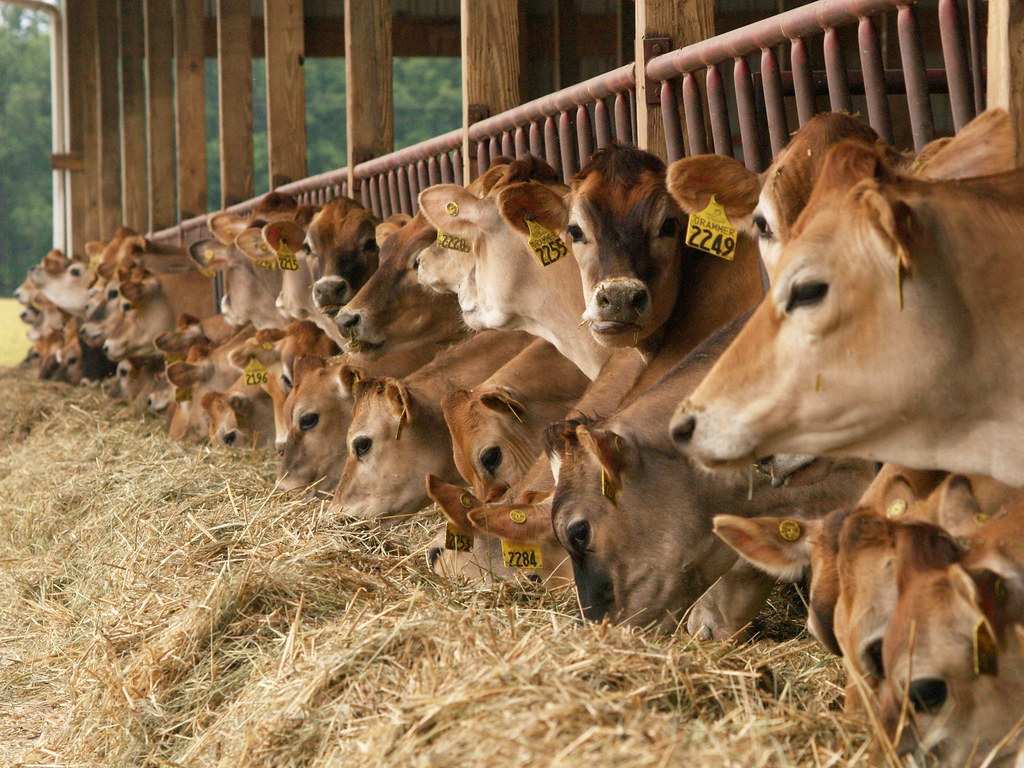

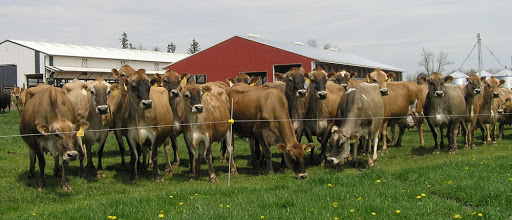
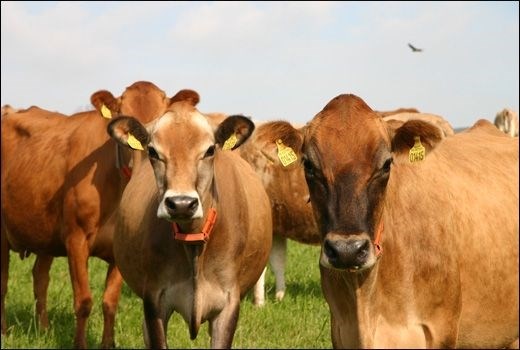
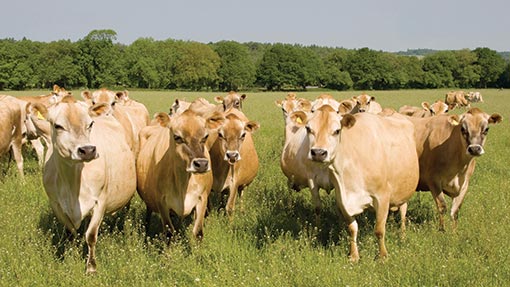
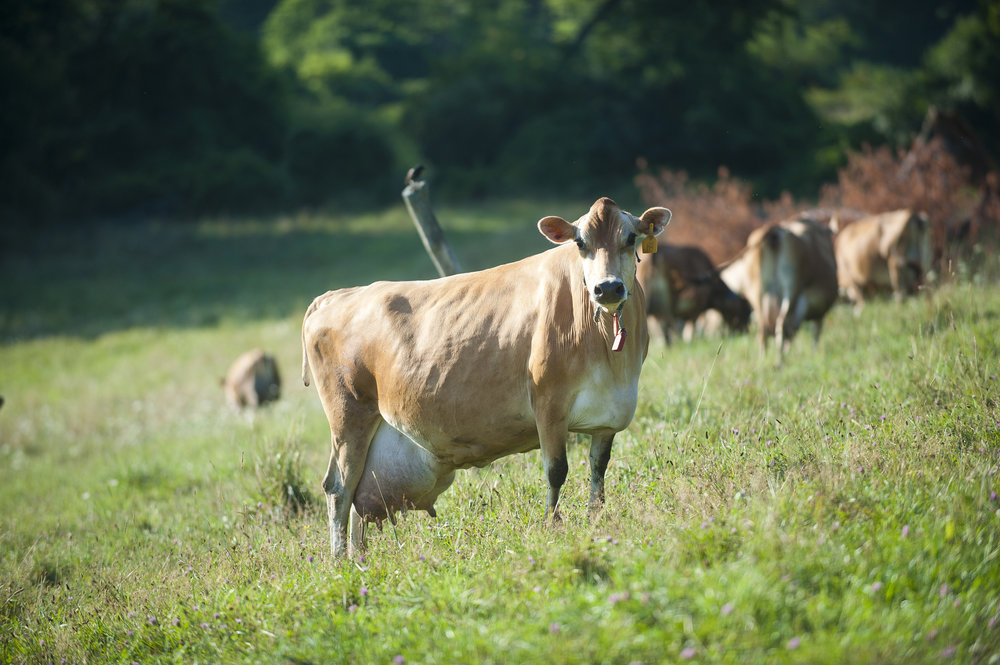
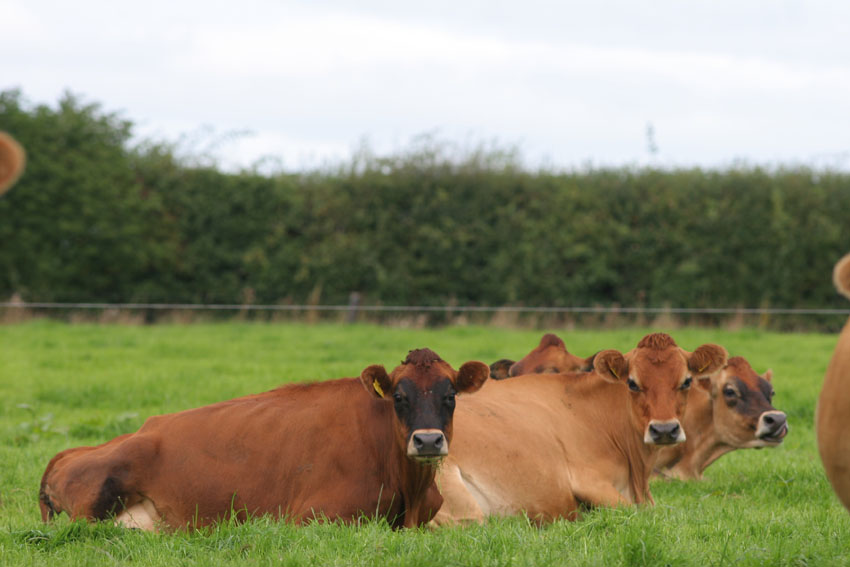
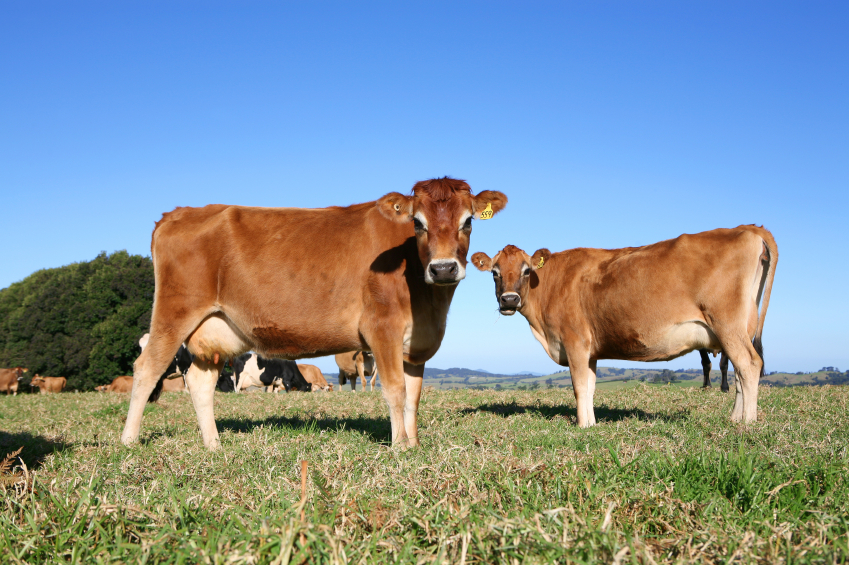
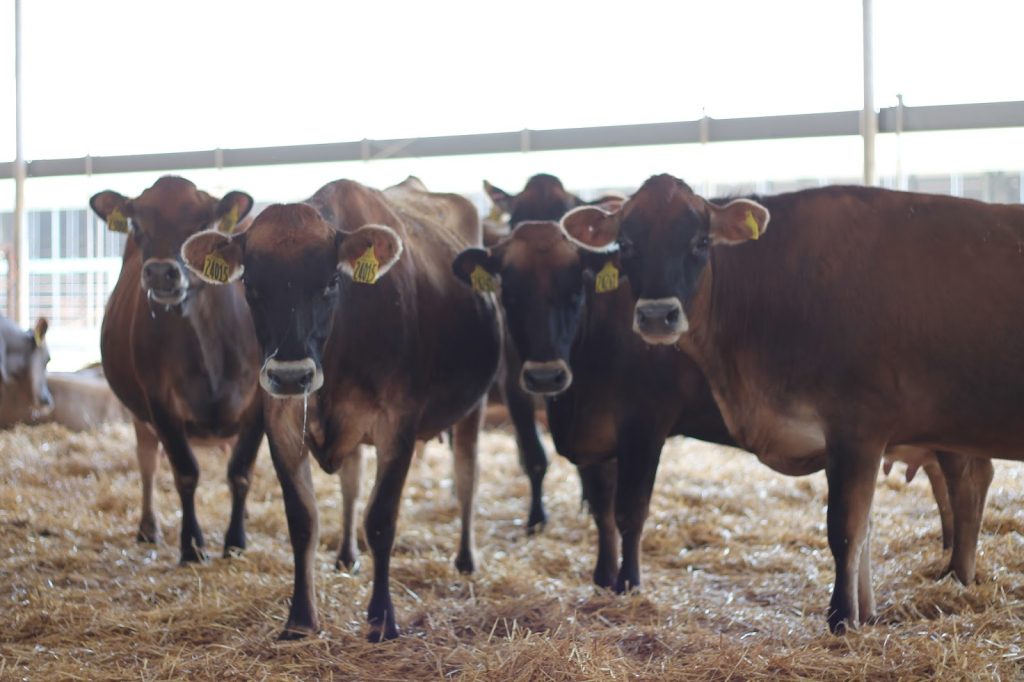
Avis des clients
Montrer 0 revues
Merci d'avoir soumis votre commentaire !